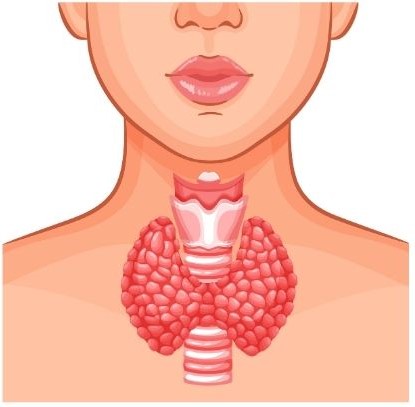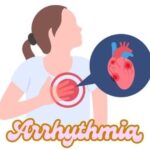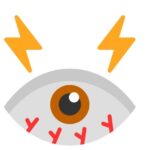The thyroid gland, a butterfly-shaped organ located at the base of the neck, plays a crucial role in regulating metabolism, growth, and development in the body. Understanding thyroid health is vital for maintaining overall well-being, as thyroid dysfunction can lead to a variety of health issues.
What is the Thyroid?
The thyroid produces hormones, primarily thyroxine (T4) and triiodothyronine (T3), which influence nearly every organ and cell in the body. These hormones regulate metabolism, energy production, and even mood. The thyroid’s activity is controlled by the pituitary gland, which releases thyroid-stimulating hormone (TSH) to signal the thyroid to produce its hormones.
Common Thyroid Disorders
1. Hypothyroidism
Description: A condition where the thyroid does not produce enough hormones, leading to a slowed metabolism.
Symptoms:
- Fatigue
- Weight gain
- Cold intolerance
- Depression
- Dry skin and hair loss
- Constipation
- Muscle weakness
Causes: Commonly caused by autoimmune diseases (like Hashimoto’s thyroiditis), certain medications, or iodine deficiency.
2. Hyperthyroidism
Description: A condition characterized by the overproduction of thyroid hormones, leading to an accelerated metabolism.
Symptoms:
- Weight loss
- Increased appetite
- Rapid heartbeat
- Anxiety and irritability
- Heat intolerance
- Sweating
- Sleep disturbances
Causes: Often caused by Graves’ disease, toxic nodular goiter, or excessive iodine intake.
3. Goiter
Description: An enlargement of the thyroid gland, which can occur in both hypo- and hyperthyroidism.
Causes: Can be due to iodine deficiency, autoimmune diseases, or hormonal changes.
4. Thyroid Nodules
Description: Lumps or growths in the thyroid, which can be benign or cancerous.
Symptoms: Usually asymptomatic but can sometimes cause difficulty swallowing or breathing.
Diagnosing Thyroid Disorders
Diagnosing thyroid disorders involves a combination of clinical evaluation, laboratory tests, and imaging studies. Here’s a detailed overview of the diagnostic process:
1. Clinical Evaluation
Medical History:
- Symptoms: A healthcare provider will ask about symptoms such as fatigue, weight changes, mood alterations, temperature sensitivity, and digestive issues.
- Family History: Family history of thyroid disorders can increase the likelihood of developing similar conditions.
- Medications: Discuss any medications being taken, as some can affect thyroid function.
Physical Examination:
- Neck Examination: The doctor will palpate the neck to check for enlargement of the thyroid (goiter) or any nodules.
- Signs of Dysfunction: The examination may also look for signs of hypothyroidism (dry skin, hair loss) or hyperthyroidism (rapid heartbeat, tremors).
2. Laboratory Tests
Blood Tests:
- Thyroid-Stimulating Hormone (TSH): This is the primary screening test for thyroid function. Elevated TSH levels typically indicate hypothyroidism, while low levels suggest hyperthyroidism.
- Free Thyroxine (FT4) and Free Triiodothyronine (FT3): Measuring these free hormones helps determine the severity of thyroid dysfunction. In hypothyroidism, FT4 is usually low; in hyperthyroidism, FT4 and FT3 are often elevated.
- Thyroid Antibodies: Tests for thyroid peroxidase antibodies (TPO) and thyroglobulin antibodies (TgAb) help identify autoimmune thyroid conditions like Hashimoto’s thyroiditis or Graves’ disease.
Additional Tests:
- Thyroid Panel: A comprehensive thyroid panel may include TSH, FT4, FT3, and antibodies to provide a complete picture of thyroid health.
3. Imaging Studies
Ultrasound:
- An ultrasound can evaluate the structure of the thyroid gland. It helps identify the presence of nodules, cysts, or signs of inflammation. It can also assess the size of the thyroid and check for abnormal growths.
Radioactive Iodine Uptake Test:
- This test measures how well the thyroid gland absorbs iodine, which is essential for hormone production. A low uptake may indicate hypothyroidism, while a high uptake may suggest hyperthyroidism.
CT or MRI Scans:
- These imaging techniques are not typically first-line but may be used in specific cases, such as when there is suspicion of cancer or if the thyroid gland is enlarged and compressing surrounding structures.
4. Biopsy
Fine Needle Aspiration (FNA):
- If nodules are found on ultrasound, an FNA may be performed to collect cells for cytological examination. This helps determine whether a nodule is benign or malignant.
5. Special Tests
- Thyroid Function Tests During Pregnancy: Pregnant individuals may require specific testing due to hormonal changes affecting thyroid function.
- Dexamethasone Suppression Test: In some cases of hyperthyroidism, this test may be used to assess the feedback mechanism of the thyroid-pituitary axis.
Diagnosing thyroid disorders involves a comprehensive approach that combines clinical evaluation, laboratory tests, imaging studies, and sometimes biopsies. Early diagnosis is crucial, as timely intervention can prevent complications and improve quality of life. If you suspect a thyroid issue, consult with a healthcare professional for an accurate diagnosis and tailored treatment plan.
Maintaining Thyroid Health
1. Nutrition
Iodine: Essential for thyroid hormone production. Ensure adequate intake through iodized salt, seafood, dairy, and eggs.
Selenium: Important for the conversion of T4 to T3. Sources include Brazil nuts, fish, and sunflower seeds.
Zinc and Iron: Both are crucial for thyroid hormone synthesis. Include meats, legumes, and whole grains in your diet.
Cruciferous Vegetables: Foods like broccoli and kale can inhibit thyroid function if consumed in excess, especially raw. Cooking these vegetables reduces their goitrogenic effects.
2. Lifestyle Factors
Regular Exercise: Physical activity can help maintain a healthy weight and improve mood.
Stress Management: Chronic stress can affect hormone levels. Techniques like yoga, meditation, and deep breathing can help mitigate stress.
Sleep Hygiene: Aim for 7-9 hours of quality sleep per night to support overall health, including hormone regulation.
3. Regular Check-ups
Regular thyroid function tests can help identify issues early, especially if you have a family history of thyroid disease or are experiencing symptoms.
Treatment Options of Thyroid disorders
Treatment for thyroid disorders varies depending on the specific condition, its severity, and the individual’s overall health. Here’s a detailed overview of treatment options for the most common thyroid disorders: hypothyroidism, hyperthyroidism, goiter, and thyroid nodules.
1. Hypothyroidism
Medications:
- Levothyroxine: The most common treatment is synthetic thyroxine (T4), which is taken daily. It restores normal hormone levels, helping to alleviate symptoms. Dosage is typically adjusted based on TSH levels, and regular monitoring is necessary.
Lifestyle and Dietary Changes:
- Iodine Intake: Ensure adequate iodine through diet, but avoid excessive intake, which can worsen symptoms.
- Regular Exercise and Healthy Diet: These can help manage weight and improve overall well-being.
Monitoring:
- Patients will require regular blood tests to monitor TSH and hormone levels to ensure the dosage of medication is appropriate.
2. Hyperthyroidism
Medications:
- Antithyroid Drugs: Medications like methimazole or propylthiouracil (PTU) reduce hormone production. Methimazole is typically preferred due to fewer side effects.
- Beta-Blockers: While these do not treat hyperthyroidism directly, they help manage symptoms like rapid heart rate and anxiety.
Radioactive Iodine Therapy:
- This treatment involves taking radioactive iodine-131, which is absorbed by the thyroid and gradually destroys overactive thyroid cells. It is commonly used for conditions like Graves’ disease and toxic nodular goiter.
Surgery:
- Thyroidectomy: In cases where medications and radioactive iodine are not effective or suitable, partial or total removal of the thyroid gland may be necessary. This is particularly relevant for large goiters or when there is suspicion of cancer.
Lifestyle and Dietary Changes:
- Avoid Iodine-rich Foods: Individuals with hyperthyroidism may need to limit intake of iodine-rich foods (e.g., seaweed, iodized salt) to avoid exacerbating their condition.
3. Goiter
Observation:
- If the goiter is small and asymptomatic, monitoring may be all that is needed.
Medications:
- Hormone Replacement: If the goiter is due to hypothyroidism, levothyroxine may be prescribed to reduce the size of the goiter by normalizing hormone levels.
Surgery:
- If the goiter is large and causing symptoms (like difficulty breathing or swallowing), surgical removal may be necessary.
4. Thyroid Nodules
Monitoring:
- Small, benign nodules often require regular monitoring through ultrasound to ensure they do not grow or change.
Fine Needle Aspiration (FNA):
- If nodules are suspicious or larger than a certain size, an FNA biopsy may be performed to determine whether they are benign or malignant.
Surgery:
- If a nodule is diagnosed as cancerous or if there is significant concern about its nature, surgical removal of the nodule or the entire thyroid gland may be necessary.
5. Thyroid Cancer
Treatment Options:
- Surgery: Most thyroid cancers are treated with surgical removal, either partial or total thyroidectomy, depending on the type and stage.
- Radioactive Iodine Therapy: After surgery, radioactive iodine may be used to destroy remaining cancerous thyroid tissue.
- Thyroid Hormone Replacement: Post-surgery, patients often require thyroid hormone replacement therapy to maintain normal hormone levels.
- External Beam Radiation Therapy and Chemotherapy: These may be used for aggressive cancers or in cases where cancer has spread.
Treatment for thyroid disorders is highly individualized, often requiring a combination of medications, lifestyle changes, and sometimes surgical intervention. Regular monitoring and communication with a healthcare provider are essential to ensure effective management of these conditions. If you suspect a thyroid issue or have been diagnosed with a thyroid disorder, a tailored treatment plan can help maintain optimal thyroid function and overall health.

Thyroid health is vital for maintaining a balanced metabolism and overall health. Understanding the symptoms, causes, and treatments of thyroid disorders can empower individuals to take control of their health. Regular check-ups, a balanced diet, and a healthy lifestyle can significantly impact thyroid function and overall well-being. If you suspect thyroid issues, consult a healthcare professional for a comprehensive evaluation and personalized treatment plan.







